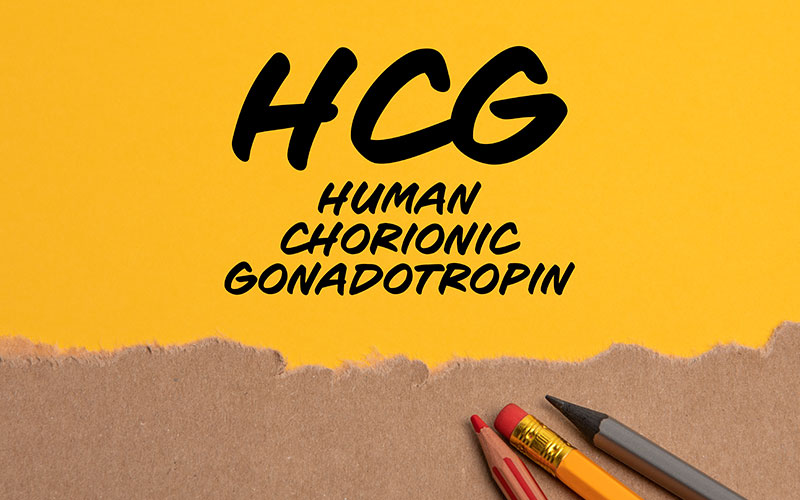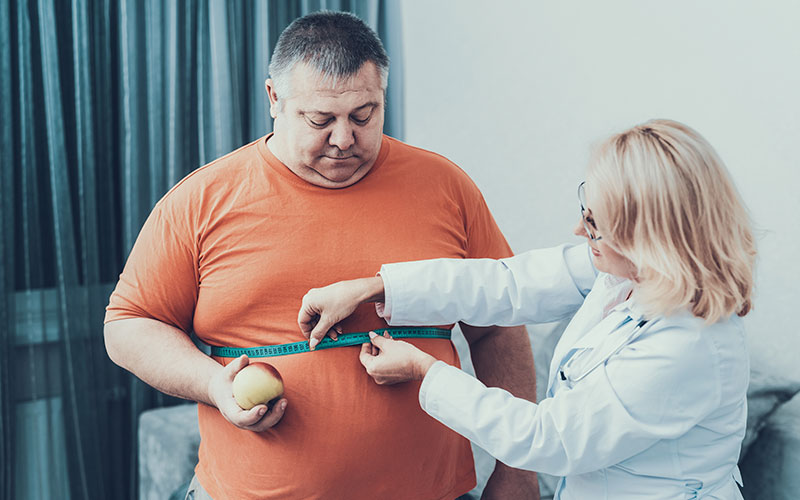- Home
- Growth Hormone
- Growth Hormone
- Growth Hormone Deficiency
- Growth Hormone Therapy
- Growth Hormone Injections
get startedThe Most Effective Hormone Replacement TherapiesWhat is Human Chorionic Gonadotropin?
Human Chorionic Gonadotropin or HCG is a glycoprotein hormone produced during pregnancy. Under a doctor’s supervision and when combined with a calorie-restrictive diet and nutritional consoling, HCG can also aid in weight loss.
HCG stands for Human Chorionic Gonadotropin. It is a hormone naturally produced in large quantities during pregnancy. Its purpose is to stimulate the mother’s body to release stored nutrients to the developing fetus. HCG is produced by the cells that surround the embryo. It is these specialized cells that eventually go on to form the placenta, the source of all nutrition from the mother to the developing fetus.
Why Is HCG Important to Your Body?
HCG is primarily related to pregnancy. HCG is present at high levels in early pregnancy. Human chorionic gonadotrophin can be detected in the urine as early as 7-9 days post-fertilization. This is why HCG is used as the marker in most home pregnancy tests.
HCG is prescribed to help treat fertility issues in both men and women. HCG is also part of very specific doctor-prescribed medical weight loss programs.
HCG Hormone Functions for Women
HCG is an integral part of fertility, menstruation, and pregnancy in women. During each regular menstrual cycle, when an egg is released, cells within the egg form a new temporary gland called the corpus luteum, which produces the female hormone progesterone. If the ovulated egg remains unfertilized, the corpus luteum stops producing progesterone and breaks down. In response to the destruction of the temporary gland, the pituitary gland produces other hormones, follicle-stimulating hormone and luteinizing hormone, to begin the menstruation and initiate the next menstrual cycle.
However, should the egg be fertilized, a different response occurs.
HCG Hormone and Pregnancy
As soon as a sperm cell enters and fertilizes an egg, signaling conception, it is vital that the corpus luteum not break down and instead continues to produce progesterone which will be essential to the developing embryo until the placenta forms, which will take over progesterone production. This is where HCG comes into play. Human chorionic gonadotrophin is the embryonic hormone that ensures the corpus luteum continues to produce progesterone throughout the first trimester of pregnancy.
In addition, HCG seems to also function in ensuring that the uterine lining, also known as the endometrium, is ready to receive an implanted embryo. Recent studies have indicated that HCG may help to increase the blood supply to the uterus and may also be involved in re-shaping the lining of the uterus in preparation for the implanting embryo.
HCG is an important hormone mostly linked to pregnancy.
HCG Hormone Functions for Men
Men’s bodies produce a small amount of HCG. In men, HCG plays a role in fertility, sperm count, and testosterone production. In male’s testosterone production is controlled by the hypothalamus. The hypothalamus produces and releases Gonadotropin-releasing hormone (GnRH). The release of GnRH, in turn, stimulates the pituitary gland to produce and release two hormones, luteinizing hormone (LH) and folliculin-stimulating hormone (FSH). LH is the hormone that signals the testicles to produce testosterone.
Because one of the functions of HCG is to produce LH, it is approved by the FDA as a fertility treatment for men. LH is essential for sperm production and the level of testosterone in the testes. Studies have found that in men who are having fertility issues due to hypogonadism, or low testosterone, HCG injections have been shown to increase testosterone and sperm count.
HCG and Weight Loss
There is a long history of HCG being used for weight loss. Researchers discovered that HCG could be used as an effective weight loss supplement when used in non-pregnant women or even men. When HCG levels are increased in the body, and there is no fetus present to use the nutrients and stored calories, they are simply eliminated instead of going to nourish a developing baby. HCG enables the body to release stored toxins, boosts metabolism, and allows the body to burn abnormal fat when used in conjunction with a low-calorie diet.
The initial research into HCG for weight loss conducted in the 1950’s used injections of HCG. Injectable HCG is still used today as a way to manage obesity; however, HCG injections are available only via a prescription and need to be administered by a physician. Do not fall for advertisements of “homeopathic” or “over-the-counter” HCG supplements. These are not approved by the FDA. Authentic HCG can only be obtained with a doctor’s prescription.
As of March 23, 2020, Human chorionic gonadotropin, or HCG, was reclassified along with a list of other drugs that the FDA will now consider “Biologic Products,” also known as “biologics.” However, despite the reclassification, you still need a prescription for HCG. At our clinics, we prescribe the FDA-approved medication, Novarel. This way, you can be sure to achieve all of the benefits of HCG in a high-quality, FDA-approved, brand-name product.
How Does HCG Impact Body Mass?
One of the main reasons that HCG is being used in medical weight loss is because it has been found to help maintain muscle mass, even when you are on severe calorie restriction. HCG for weight loss is used in conjunction with intense calorie restriction. Under normal circumstances, such a low-calorie diet that is used in conjunction with HCG would result in muscle loss as well as weight loss.
This is because without the presence of increased HCG, on calorie restriction, your body will go into starvation mode and decrease muscle to reduce calorie demand. Muscle tissue, even at rest, requires energy in the form of calories. HCG seems to aid in weight loss by burning fat and increasing metabolism without the concurrent loss of muscle mass.
What Is the HCG Diet?
The HCG diet has been around since the 1950s. It was initiated by the late British Physician, Dr. A.T. W. Simeons. His research was published in a report called "Pounds and Inches – A New Approach to Obesity." Dr. Simeons devoted years of research to patients that were suffering from obesity. During the time of his research, he noticed several important factors that were instrumental to his research.
For example, when his patients were given HCG injections, they had no headaches, hunger pains, weakness, or irritability as long as a low calorie-restricted diet was combined with HCG. This is because the purpose of HCG is to release stored nutrients for the fetus. Apparently, HCG injections can "trick" the body, even a male body, into thinking it’s "pregnant."
Without a developing fetus to feed, the extra fat burned that would normally be converted to nourish the baby leads to weight loss instead, but the HCG protects muscle mass, just as it would during pregnancy.
How Does HCG for Weight Loss Work?
The key to the HCG diet is severe caloric restriction. People using HCG for weight loss are usually restricted to only 500 calories per day. HCG helps you to stay healthy and strong while being on such a low-calorie diet.
Your body basically stores three kinds of fat:
Necessary Fat – Which is the structural fat that fills the gaps between organs and is needed for the body to maintain its integrity and to function properly.
Normal Fat – Which is the fat that is “normally” stored by the body and is used for fuel when necessary.
Abnormal Fat – This is the excess fat that accumulates in the abdomen, hips, thighs, and buttocks – the fat we want to get rid of through diet and exercise.
Unfortunately, during ordinary dieting, the body will use fat in just the opposite way we would desire.
In most diets, we usually lose the normal fat first. Then, the body burns structural fat next, and it only goes to work on the fat we want to lose most — the abnormal fat, last. Dr. Simeons found that this apparently does not happen while dieting and taking HCG injections. It seems that when combined with low caloric intake, HCG resets the hypothalamus to target the abnormal fat first!
This occurs because, normally, HCG is what stimulates the release of stored fat to nourish a developing fetus during pregnancy. A pregnant woman cannot afford to lose necessary or even copious amounts of normal fat – so instead, HCG targets abnormal fat.
HCG acts on the hypothalamus, signaling the body to release stored fat into the bloodstream, where it is then available to be utilized by the cells for nourishment; this alone will not cause weight loss unless you combine HCG with a low-calorie diet.
Studies have shown that, when used in conjunction with limited caloric intake, HCG jump-starts the metabolism and causes the release of abnormal fat without affecting structural fat and muscle tissue.
This means that you only lose fat in the stubborn areas such as the hips, thighs, buttocks, and upper arms. HCG not only assists the body with burning abnormal fat but also helps to permanently reset the hypothalamus, gearing your metabolism to burn abnormal fat and build lean muscle for the rest of your life.
Does HCG Have Any Side Effects?
HCG is a naturally occurring hormone. HCG injections are approved by the FDA and generally regarded as safe. Most people taking HCG injections experience few if any side effects. However, like any prescription medication, HCG can have some side effects. Some of the reported side effects of HCG include:
- Gynecomastia (growth of male breasts)
- Pain, swelling at the injection site
- Allergic reactions (skin rashes)
What Is the Difference Between HCG and HGH?
Because they sound alike and because HGH can also aid in weight loss, HCG and HGH are often confused. HCG and HGH, or human growth hormone, are not the same. They are two quite different therapies, prescribed for very different purposes. HCG is used in combination with a calorie-restricted diet as an effective form of medical weight loss. HGH is used to treat patients suffering from a growth hormone deficiency (GHD). Although weight loss and increased lean muscle is a benefit of HGH therapy for patients with GHD, HGH is not intended to be a weight loss solution.
There is reason to believe that HCG when combined with reduced caloric intake, can aid in weight loss.
Now that you know a little bit more about the role of HCG and how it can encourage weight loss, why not contact us today and learn more about the many life-changing benefits of hormone therapy.
- Growth Hormone Therapy




























